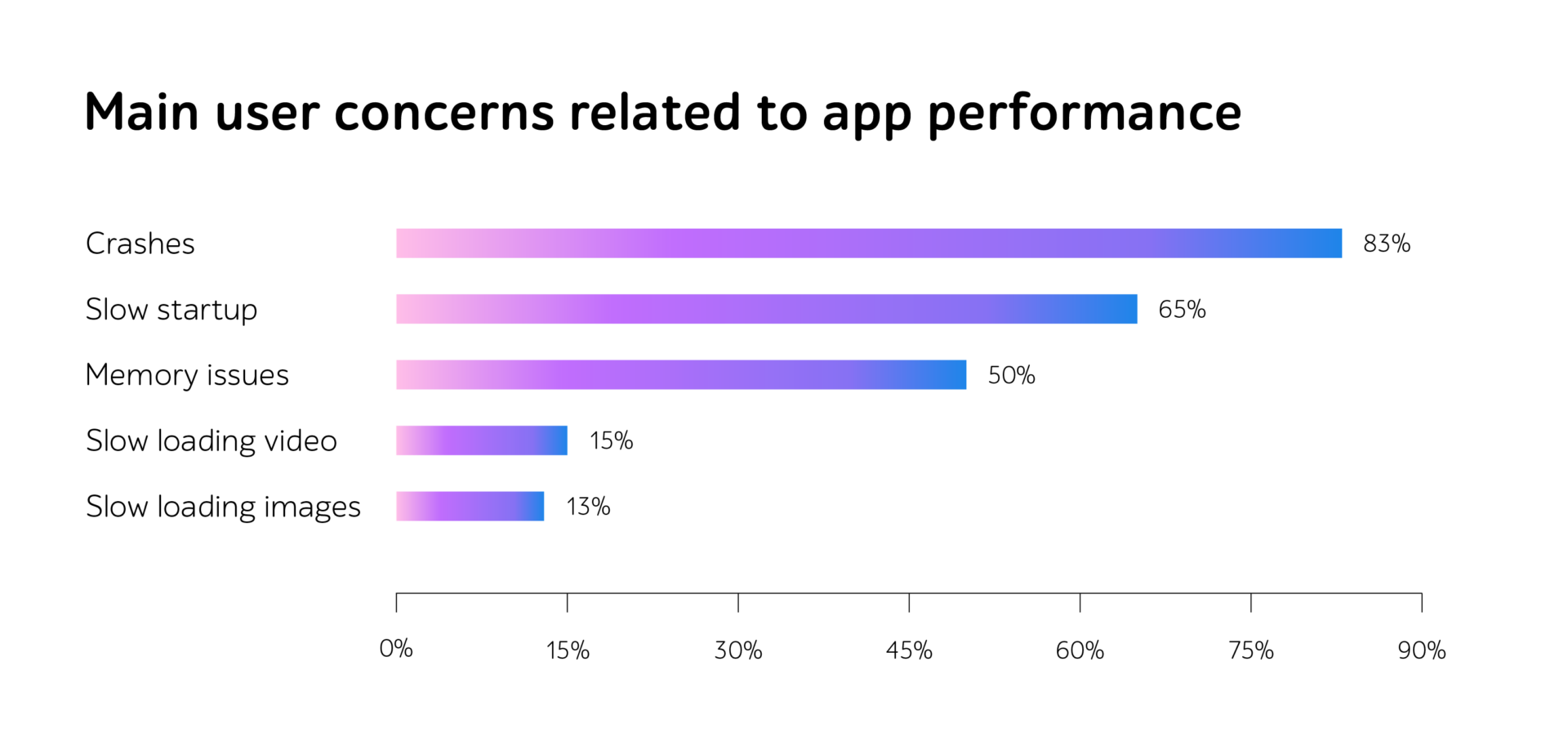
7 reasons why businesses need load testing
Picture this: it’s the final dress rehearsal before the big performance at the theater. The stage is set, the actors are in costume, and the crew is making sure everything runs smoothly. This rehearsal is crucial because it can make or break the show.
Load testing is akin to dress rehearsal. It’s the final check before the big debut, determining whether the system is ready to operate stable. Just like actors rehearse their lines and movements to perfection, load testing helps ensure that software or websites can cope with the required target load for an extended period of time.
But why is load testing so essential for businesses? In this article, we’ll explore 7 compelling reasons why businesses should adopt load checks to release high-end IT solutions.
Reason #1. Optimized performance
In the competitive online landscape, speed is key. 1 in 5 users expect the app’s main flows to load in less than 5 seconds. Or they get frustrated and uninstall the software. However, velocity isn’t the only issue they face. As statistics show, 83% of consumers are concerned about app crashes, 65% — about slow software startup, 50% — about memory issues.

Source: The State of Mobile Experience
Let’s take, for example, the case of an eCommerce platform gearing up for a flash sale event. Here, load tests allow companies to identify potential bottlenecks in the system, ensuring that the website will handle the surge in traffic without slowing down or crashing. Ultimately, this helps deliver seamless customer experiences and increase revenue-generating opportunities.
Reason #2. Improved scalability
As businesses grow, their user base expands, placing greater demands on the system’s operation. In such cases, load testing is critical to enable organizations to predict how their infrastructure will scale as traffic increases.
By relying on load checks, they assess whether their servers cope with the influx of users without compromising software performance. By anticipating scalability issues in advance, they can guarantee uninterrupted service for clients.
Reason #3. Minimized cost of failure
System failures can have dire consequences, ranging from lost revenue to damaged reputation. However, by identifying potential performance bottlenecks and system vulnerabilities early in the SDLC stages, companies mitigate the risk of expensive downtime, service disruptions, and data breaches while boosting customer satisfaction and loyalty.
Additionally, load testing enables businesses to optimize resource utilization, reducing unnecessary infrastructure expenses and operational overheads.
Reason #4. Eliminated downtime
Load testing allows organizations to uncover issues that could lead to downtime during peak usage periods. For instance, an online retailer preparing for a major sales event may conduct load testing to ensure their platform can handle high workloads and data processing without problems, thereby maintaining stability and reliability. By simulating thousands of concurrent users attempting to make purchases simultaneously, the company can identify and address any performance degradation in their system, such as slow response times or server errors.
This approach helps guarantee flawless shopping experiences for customers, minimize the risk of downtime, and maximize sales opportunities during critical business periods.
Reason #5. Enhanced end-user satisfaction
With load tests, businesses ensure that their applications are fast, reliable, and user-friendly. Improved performance leads to higher customer satisfaction, increased engagement, and positive word-of-mouth referrals. It’s obvious that a software product that consistently delivers uninterrupted customer journeys is likely to attract and retain more users over time.
Reason #6. Accelerated releases without quality compromise
By incorporating load testing into the CI/CD pipeline, organizations can detect and address performance bugs early in the development lifecycle. Thus, each release undergoes rigorous testing under simulated load conditions, enabling experts to identify and fix potential challenges before deployment.
As a result, businesses can maintain a rapid release cadence while upholding quality standards, meeting customer expectations, and staying ahead of the competition.
Reason #7. Streamlined resource utilization
Efficient resource allocation is essential for controlling costs and maximizing performance. Load testing helps enterprises analyze how their systems utilize resources under different load conditions. For example, a cloud-based software provider may use load checks to determine the optimal number of servers needed to support varying levels of user activity.
By optimizing resource utilization, businesses can reduce infrastructure costs and improve the scalability of their applications.
Summarizing
In today’s fast-paced digital landscape, where user expectations are higher than ever, load testing emerges as a critical practice for businesses striving to deliver exceptional experiences.
By adopting load tests, organizations can optimize performance, improve scalability, minimize the cost of failure, eliminate downtime, enhance end-user satisfaction, accelerate releases without quality compromise, and streamline resource utilization.
Need support in establishing load testing workflows? Reach out to a1qa’s team.








